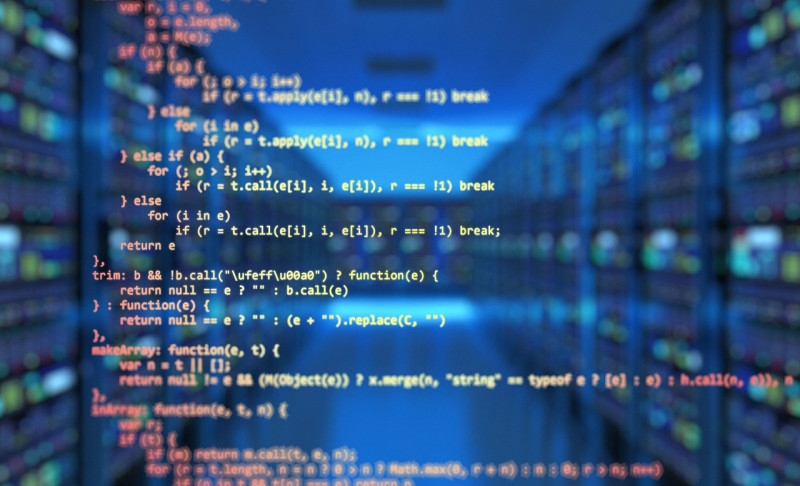Description
If you are looking for a powerful programming language, you should learn Python, a language with a simple syntax and a powerful set of libraries.
Python is easy for beginners to learn and is widely used in many fields, especially in scientific data exploration.
In this one-day Python training workshop, you will learn to program using Python 3
Workshop Outline:
Introduction and Python Overview
- What is Python? (a Brief History of Python)
- Why Choose Python?
- What can you do with Python?
Installing Python
- Install Anaconda Distribution for Python (Guide them through the installation process).
- Briefly Running Jupyter Notebook (Demonstrate how to open and run notebooks).
- Exploring "No-Install" Online Options (E.g., Google Colab for cloud-based Python).
Running Python Code
- Text Editors vs Full IDEs.
- Notebook Environments
- Jupyter Notebook Overview (A quick tour of its interface, cells, and execution).
Python Basics: Coding Fundamentals:Python Objects (What are variables, data types).
- Python Objects (What are variables, data types).
- Python Data Structure Basics (e.g. Lists, dictionaries, tuples).
- Python Comparison Operators (==, !=, <, >, etc.).
- Python Statements (if-else, loops, basic input/output).
- Methods and Functions (Introduction to function creation, calling, and using built-in functions).
- Hands-on Practice: Exercises for each topic.
-Lunch Break-
Introduction to Key Libraries:
- A Quick Tour in NumPy (Basics of numerical operations with arrays).
- A Quick Tour in Pandas (Introduction to DataFrames for handling datasets).
- A Quick Tour in Matplotlib (Basic data visualization).
- Hands-on Practice: Perform simple operations like creating arrays with NumPy, manipulating data in Pandas, and creating a basic plot using Matplotlib.
Q&A
Very Important Notice:
- This workshop introduces the Python programming language, specifically aimed at people who are new to the language and have little experience with other programming languages.
- Participants are kindly requested to install the Anaconda Distribution for Python prior to attending the workshop and to bring their own laptops. The Anaconda software is freely available online.
- Please note that due to time constraints, we will not be able to assist with installation issues during the workshop itself. If you encounter any technical difficulties with the installation, feel free to reach out to us a few days/weeks before the workshop via email, and we will do our best to assist you in advance.
In case, you have trouble installing, please do watch one of the Tutorial videos for installing anaconda on Windows:
and one of Tutorial videos for installing anaconda on MacOS:
Day to Day Documents
Day programme S005 Intro Python 2026.pdf
Lecturers
Mahdi Shafiee Kamalabad
Target audience
Researchers, students, engineers, analysts, programmers who are interested in an introduction to the Python programming language.
For an overview of all our winter school courses offered by the Department of Methodology and Statistics please click here.
Aim of the course
The primary aim of this introductory course is to provide learners with foundational knowledge of Python. It is designed for a broad range of participants, including students, researchers in data science and statistics, and other professionals seeking to learn and apply Python in their respective fields.
Learning Goals
By the end of this introductory course, participants will be able to:
Detailed Learning Objectives:
- Install Anaconda for Python: Guide participants through the installation and setup of the Anaconda Distribution for Python.
- Grasp Python Fundamentals: Introduce essential Python concepts such as variables, data types, and data structures.
- Use Jupyter Notebook: Demonstrate effective usage of Jupyter Notebook for running Python code interactively.
- Code Basics: Develop the ability to write and execute basic Python code, focusing on variables, comparisons, and core data structures.
- Create Python Statements: Teach participants to construct and apply Python statements (e.g., loops, conditionals).
- Use Python Methods and Functions: Explore built-in Python functions and methods to enhance coding efficiency.
- Develop Custom Functions: Enable participants to write their own Python functions for reusable code.
- Explore Python Libraries: Provide a brief introduction to important Python libraries such as NumPy, Pandas, and Matplotlib, which are essential for data analysis and visualization.
Study load
One day.
You will receive a certificate upon course completion. Please be aware that this course does not include graded activities, and therefore, we cannot provide a transcript of grades.
Costs
-
Course fee:
€199.00
-
-
Included:
Course + course materials
The tuition fee for staff off the Faculty of Social and Behavioural Sciences from Utrecht University will be funded by FSBS.
For PhD students from the FSBS at UU:
As a PhD student from the Faculty of Social and Behavioural Sciences (FSBS) at Utrecht University, you can attend up to three Winter or Summer School courses funded by the Graduate School of Social and Behavioural Sciences. Of course, you may choose to take as many other courses as you wish at your own expense, using your personal budget.
When registering, please indicate in the “Comment” field that you are a PhD candidate from the FSBS at UU, so that the course fee can be waived.
Utrecht Summer School does not offer scholarships for this course.
Tags
